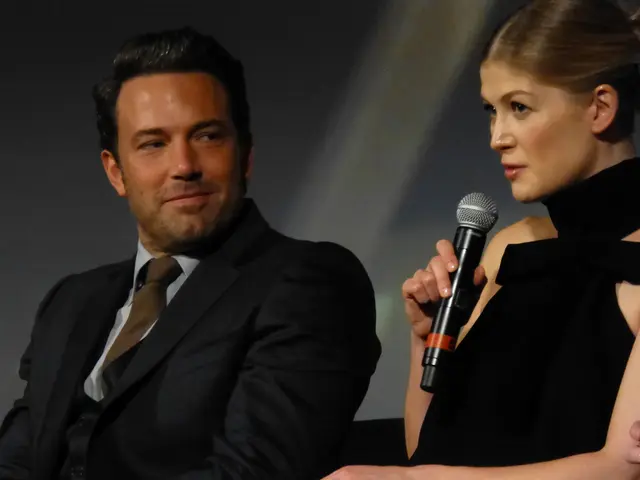Unveiled: Roald Dahl's concealed anti-Semitic perspectives showcased in a hard-hitting production, underscoring the author's duplicitous and fiendish tendencies beyond his adored children's stories.
In a world spun from the vivid imagination of Roald Dahl, a man who inspired dreams and sparked imaginations, a darker side of his worldview has been unearthed, casting a shadow over his legacy.
Beneath the surface of beloved tales like Matilda and James and the Giant Peach, lay the harsh, controversial opinions of this revered author. His musings on the work of others, for instance, laid bare his antisemitic beliefs, commenting on Israel’s invasion of Lebanon and accusing Jewish people of manipulating the media and financial institutions.
Dahl's unwillingness to apologize for these statements led to a heated exchange with journalist Michael Coren, which has left a lasting imprint on the world of literature. In an interview, Dahl stated, "Even a stinker like Hitler didn’t just pick on [Jews] for no reason."
The play, Giant, now on the West End stage, delves into this ugly aspect of Dahl's character. Starring John Lithgow as the infamous author, the drama unfolds as an American Jewish sales executive is dispatched to persuade Dahl to issue a public apology. The play earned Lithgow an Olivier award for best actor.
Despite vast contributions to children's literature, Dahl's personal views have ignited debates about separating art from the artist, and the complications that arise when beloved cultural figures hold prejudiced views. Dahl occasionally expressed these prejudices in his stories, such as the misogynistic portrayal of Miss Trunchbull in Matilda and the sinister nature of Willy Wonka, reflecting a darker facet of the author's imagination.
Despite the controversy, attempts have been made to honor Dahl's life and works, including a Royal Mint commemorative coin that was initially rejected due to his association with antisemitism. A subsequent statement released by Dahl's family acknowledged the hurt caused by his statements, acknowledging that they "stand in marked contrast to the man we knew."
Reflecting on Dahl's complicated legacy, author Jeremy Treglown wrote, "He was a fantasist, an anti-semite, a bully, and a self-publicizing troublemaker." However, Lithgow, who portrays Dahl in Giant, offers a more nuanced perspective, describing the author as "a very complicated man damaged by terrible tragedies."
So, who was Roald Dahl? A monster cloaked in scales or a magician laboring under the weight of his own personal battles? As audiences flock to Giant, they'll continue to grapple with that question, still seeking to decipher the enigma that was Roald Dahl.
- Amidst the never-ending flow of news, the world of entertainment remains captivated by the ongoing debate surrounding Roald Dahl's legacy, with his controversially prejudiced views on science, celebrities, and even the Jewish community casting a long shadow.
- Parallel to thetblishions of adored books that graced the world, like Matilda and James and the Giant Peach, criticisms concerning Roald Dahl's antisemitic beliefs and misogynistic portrayals continue to surface, fueling discussions about the boundaries between art and artist.










